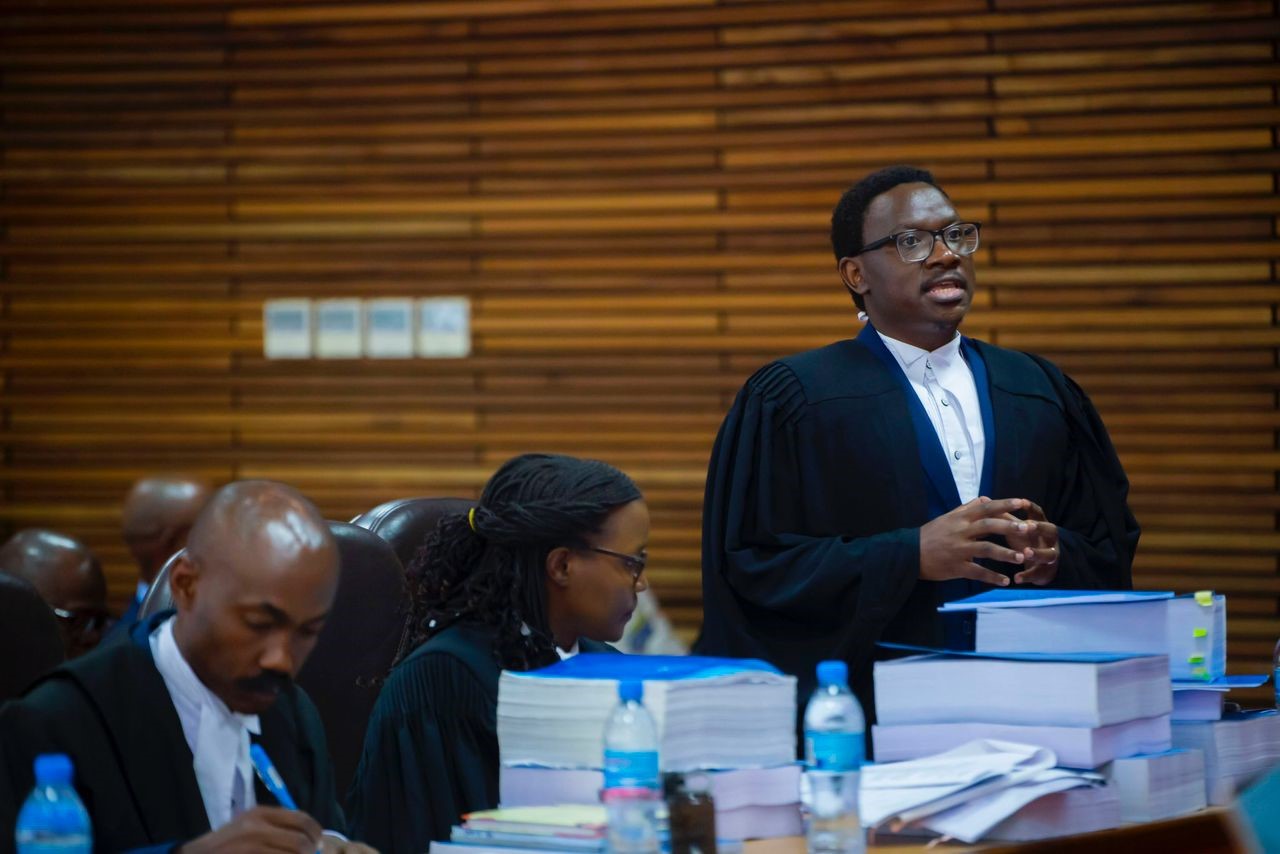Jumuiya: East Africa Community Law Journal (a peer-reviewed periodical of Kabarak Law School) is delighted to have its Co-Editor-in-Chief, Dr Harrison Mbori, and Mrs Emily Osiemo Lumumba, Associate Editor, as part of the litigation team (which also includes Mr. Elisha Ongoya, a Senior Lecturer at Kabarak University) in the first inter-state reference at the East African Court of Justice (EACJ/Court) between the Democratic Republic of Congo (DRC) and the Republic of Rwanda. Dr Mbori, Mr Ongoya, and Mrs Lumumba represent the DRC in the suit. The DRC filed the case at EACJ on 23 August 2023 over Rwanda s alleged continuous military occupation in the Eastern region of DRC.
On 26 September 2024, the parties appeared before the First Instance Division of the EACJ, to present their arguments on some procedural aspects of the case. Among them, Rwanda made preliminary applications arguing that the DRC did not file some pages of the United Nations reports annexed to the supporting affidavits documents in English , which is the official language of the EACJ. These documents had initially been filed in French. The DRC s legal team argued that the said documents were not pleadings and could not be struck out under Rule 47 of the Rules of the EACJ. In any case, the documents had now been fully translated and the DRC was seeking leave to have them admitted into evidence.
 From Left to Right: Elisha Ongoya, Emily Osiemo, and Harrison Mbori at the East African Court of Justice (EACJ) in Arusha on September 24, 2024.
From Left to Right: Elisha Ongoya, Emily Osiemo, and Harrison Mbori at the East African Court of Justice (EACJ) in Arusha on September 24, 2024.
Rwanda also contested the jurisdiction of the EACJ over the case. They argued that the Court lacked jurisdiction because the reference was filed outside the two-month limitation period set out under Article 30 of the Treaty for the Establishment of the East African Community (EAC Treaty). Further, the DRC had raised violations that took place before the DRC became a member (Partner State) of the EAC. In response, DRC argued that the Court had jurisdiction to hear and determine the reference as it was filed under Article 28 of the EAC Treaty and the two-month limitation period applied to references filed by natural and legal persons; and not states. Further, the DRC argued that the facts relating to the violations by Rwanda occurred after the DRC joined the EAC, thus, the case was admissible before the Court.
As we await the decision on the procedural hiccups of the suit, the case invites the EACJ and the litigants to test their legal, institutional, and political muscle. The recent development spurs rethinking EACJ s stance on English as its only official language, amid growing solidarity within organs and institutions of the East African Community (EAC) to include Kiswahili and French as official languages. For the case, such solidarity signals foreseeable, though not immediate, changes to EACJ s language of dispensing justice. This may result in EACJ investing in translation costs for all its legal and administrative records, thus unburdening the litigants of this duty. Language of justice demands keener observation of how EACJ will position itself as a mediator of inter-state conflicts within the EAC and how the outcome of its mediation will be articulated through its jurisprudence.


